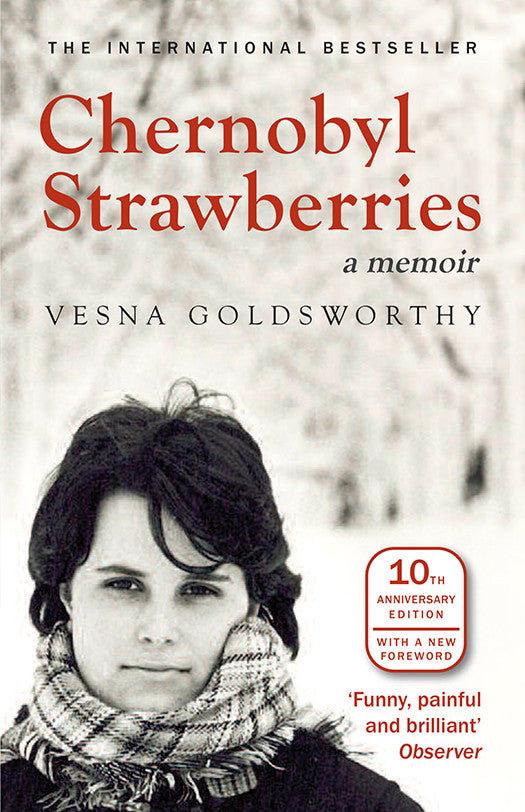‘A book about a woman from a war-shredded country, who discovers she has breast cancer… Not a bundle of laughs, one would assume. One would be wrong. Chernobyl Strawberries is, amongst other things, very funny. Goldsworthy decided to write this memoir after her cancer diagnosis, as a record for her son. She plays on the contradictions of her life to great effect. A bourgeois from a socialist country, she doesn't have any misery stories about Tito's dictatorship. Indeed, she concentrates on the ridicule moments of a government in decline. The reader also witnesses the high level of education offered by the communist country. State subsidies helped poetry magazines and festivals to survive. One of the nicest things about being a poet in socialist Yugoslavia was the idea that poetry mattered, Goldsworthy observes. She was invited to read her poems in front of an audience of thirty thousand people at a commemoration for Tito, an event discreetly supervised by the police. As a student, she was also a presenter on a radio station funded by the government. These skills prove useful when she moves to London and works for the BBC. Her early life in Belgrade is presented to us non-chronologically so that the reader constantly dips in and out of it. We get to know the young Vesna well. A confident young woman, she seems to have been successful in every ambition, while intelligent and good-looking young men courted her. The one who she finally settled on was English, and Goldsworthy moved to London. We see her settling into her new country and the funniest moments of the book are when she contrasts her English life with the very different customs of her native country. As a woman caught in history, Goldsworthy appears remarkably adaptable. Rather than try and influence events or engage politically, she adapts and survives with ease. She comments on the chameleon-like quality of her youth and concludes that, at forty-one, I discovered that I was no longer able to change colour at all. I stretched my white body on my big green leaf, a bald, wounded caterpillar. I was free. This journey is intelligently written. The beauty of Belgrade provides a melancholic undertone and we can only mourn, with the writer, the lost world which she conjures up. ‘ - Bookbag
‘Honest, elegiac, life-affirming - these are all words used to describe this heart-felt and lyrical memoir. First published in 2005, it became an international bestseller. Happily it's now available again, brought up to date with a new introduction. Vesna Goldsworthy was born in Belgrade in 1961 and her story reflects on life before and during the break-up of Yugoslavia and her move to the UK in her twenties, where she worked in a university. Writing flawlessly in her third language, Goldsworthy evokes the privileged life she enjoyed as a child in a family who went from 'being shepherds to skiers in three generations'. Piano lessons, French lessons, role-playing her mother's important managerial job with 'air telephones': these cameos contrast with later years, when, as a young mother, she became Baldilocks. 'Yellow faced and radiation sick' after an operation for breast cancer, she preferred to lose herself in books rather than try to come to terms with the shortened odds on her life expectancy. Commenced as an attempt at emotional healing while she was undergoing radiation therapy, this bittersweet memoir muses on the past, and on her cancer, but it resists focusing solely on the strain of illness. Instead, it's about pushing oneself to live life, no matter how hard the circumstances. In its opening essay and epilogue, the book considers, also, the role of writing in general, and memoir in particular. It's a poignant story of loss - of a country, of hope, of a way of life - and recovery.' - booktrust
'Engrossing…the work of a fiercely honest and cultivated intelligence' - Sunday Times
‘Exceptional. If there has been a more honest, calm and profoundly moving memoir written in the last few years, then I've missed it.' - Times Literary Supplement

